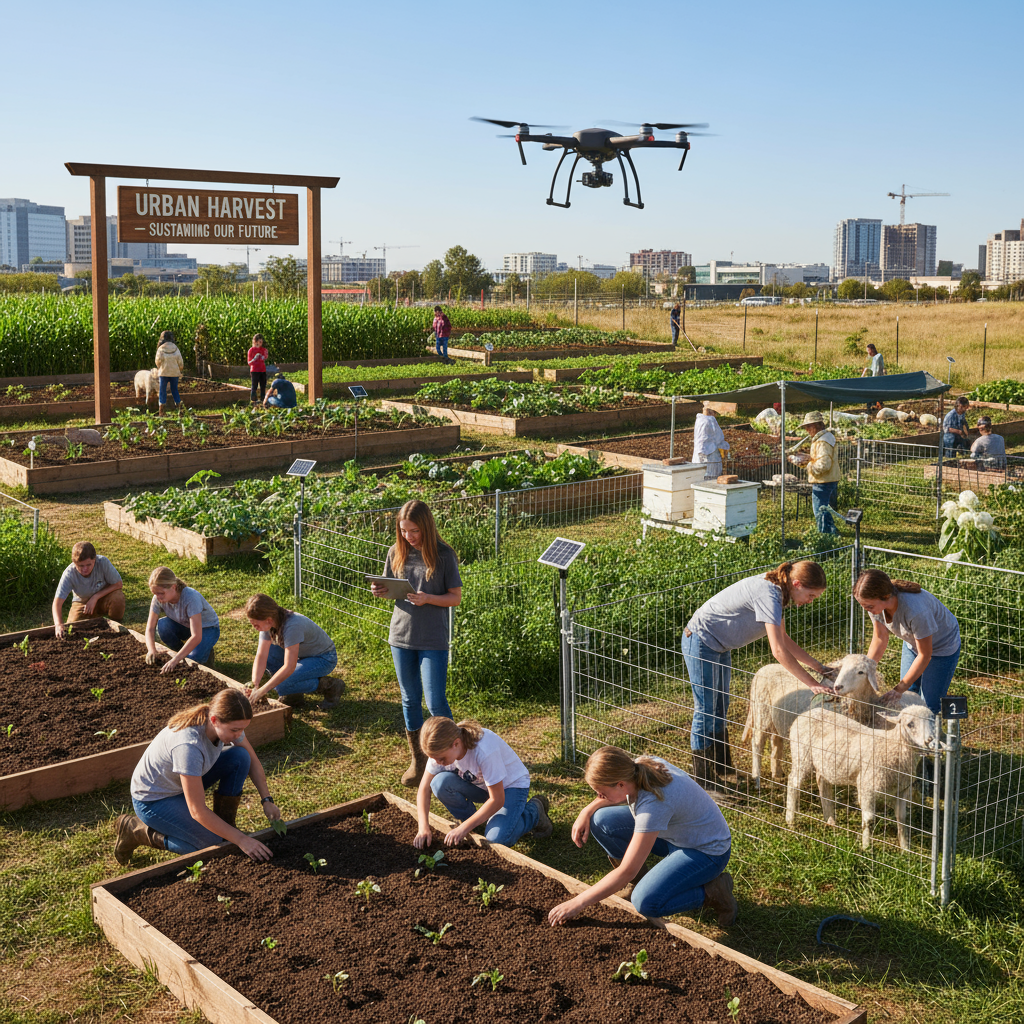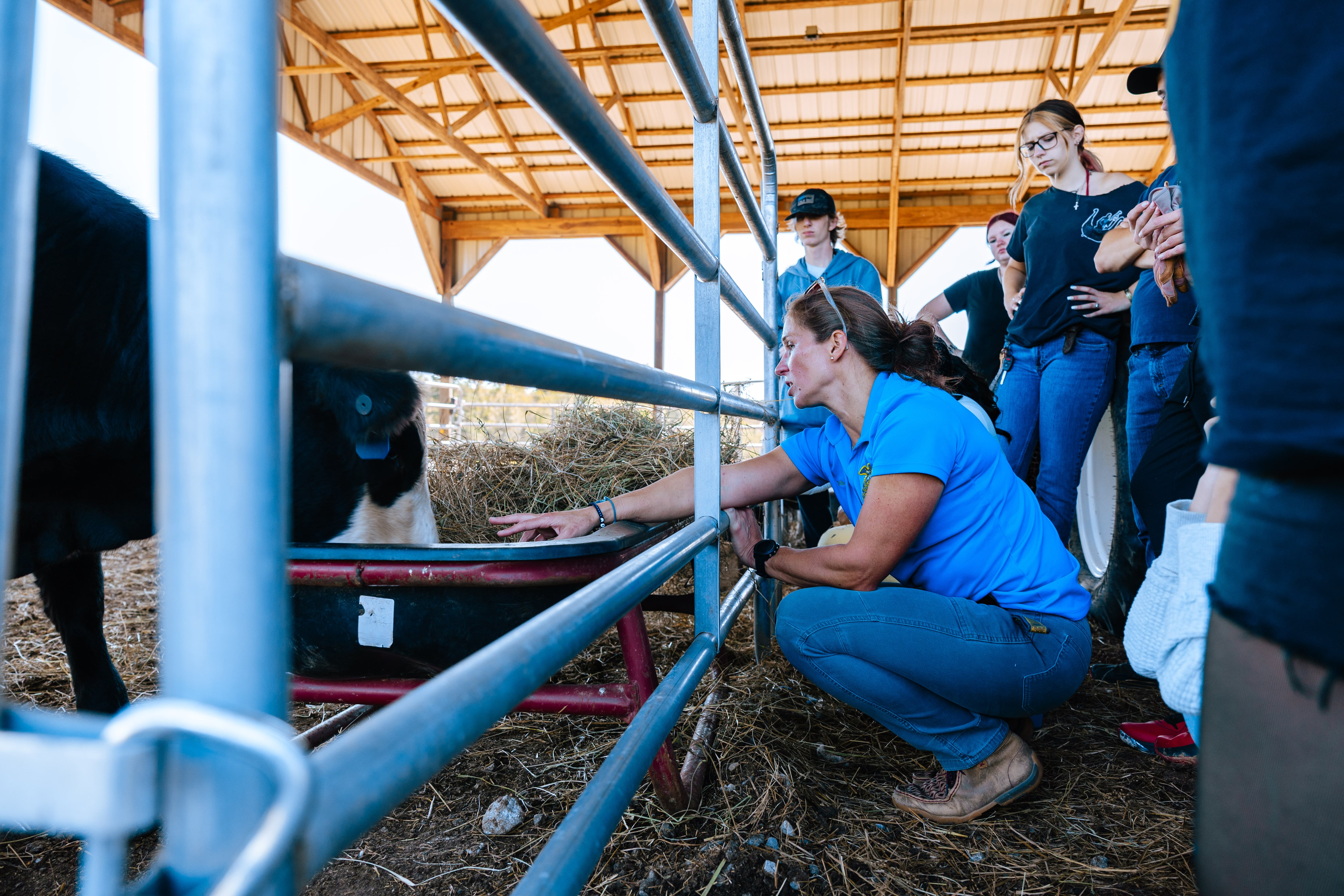
Hands-On Agriculture Education in Schools: Building Confidence and Sustainability
In today’s era of rapid urban expansion, integrating agriculture education into school curricula has become increasingly important. This hands-on approach not only enhances student confidence and engagement but also reconnects them with the origins of their food, fostering a deeper understanding of sustainability and the environment. Through managing school farms, participating in livestock programs, and embracing technological innovations, students gain practical skills and awareness of global agricultural challenges. Supported by policy and global initiatives, agriculture education plays a crucial role in bridging the gap between urban youth and the natural world, preparing informed and environmentally conscious future citizens.
Summary
Introduction
In an era where urban expansion often overshadows the importance of agriculture, educational institutions are increasingly recognizing the value of integrating agriculture education into their curricula. This approach not only boosts student confidence through hands-on learning but also connects them with the origins of their food, fostering a deeper appreciation for sustainability and nature. This article explores how schools are leveraging agriculture education, from managing school farms to participating in livestock shows, to enhance student engagement and understanding of critical global issues.
Key Takeaways:
- Hands-on agriculture education significantly boosts student confidence and engagement by providing practical experiences.
- School farms serve as educational tools for teaching sustainable practices, ecosystem management, and animal husbandry.
- Amid urban growth, agriculture programs in schools help bridge the gap between urban students and the natural world, emphasizing the importance of local food systems.
- Global initiatives, like those from 4H and FFA, are adapting to local contexts to promote agricultural knowledge and leadership.
- Technological advancements are being integrated into agriculture education to prepare students for future innovations in farming.
Hands-On Agriculture Education: Boosting Student Confidence
Agriculture education in schools goes beyond textbooks, offering students tangible experiences that enhance their confidence. By engaging in activities like planting crops, managing soil, and understanding crop science, students see the fruits of their labor, literally. This practical approach to learning agriculture not only teaches them about farming but also about responsibility, patience, and the science behind food production. Studies have shown that students involved in agriculture education programs often display higher self-esteem, better academic performance, and increased engagement in school activities due to the direct application of their knowledge.
Building and Maintaining School Farms
School farms are more than just plots of land; they are dynamic educational environments. Here, students learn about the complexities of ecosystems, the economics of farming, and the nuances of animal husbandry. For instance, a school farm might include sections dedicated to different crops, a small apiary for beekeeping, and areas for livestock like show lambs. Managing these farms teaches students about project management, environmental stewardship, and sustainable practices. They learn to care for animals, understanding the basics of animal husbandry, which includes breeding, health, and nutrition, thereby fostering a sense of responsibility and empathy towards living creatures.
Connecting Students with Agriculture Amid Urban Growth
As urban areas continue to expand, the traditional connection between people and agriculture diminishes. School agriculture programs are crucial in this context. They educate urban youth about the origins of food, the importance of local food systems, and the need to preserve agricultural land. Programs often involve students in community gardening or partnerships with local farms, providing a direct link to agriculture. This education is vital for understanding policy implications regarding land use, promoting green spaces, and ensuring food security in urban settings.
Global Perspective and Technological Integration
Globally, there's a growing recognition of the need to integrate agriculture into educational systems. Organizations like 4H and Future Farmers of America (FFA) are expanding their reach, adapting their programs to fit diverse agricultural contexts worldwide. These programs emphasize leadership, personal growth, and practical agricultural skills. Moreover, modern agriculture education is not just about traditional farming; it's increasingly incorporating technology. Students learn about precision farming, using drones for crop monitoring, and IoT for livestock management, preparing them for a future where technology plays a pivotal role in agriculture.
Policy Support and Environmental Impact
Many regions are supporting these educational initiatives through policy and funding, recognizing their dual role in education and community development. Grants and subsidies are often available for schools to start or expand their agriculture programs, aiming to combat urban sprawl and promote sustainable practices. Environmentally, school farms contribute significantly by enhancing local biodiversity, providing habitats for wildlife, and teaching students about sustainable practices like organic farming, composting, and water conservation. This hands-on approach to environmental science educates students about the impact of their actions on the planet.
Conclusion
Incorporating agriculture education into school curricula is more than an educational trend; it's a necessary step towards creating informed, confident, and environmentally conscious citizens. By engaging with school farms, livestock programs, and global initiatives, students not only learn about farming but also about their role in a sustainable future. As urban areas grow and the natural world seems further away, these programs are vital in reconnecting students with the earth, ensuring that the knowledge of agriculture and its importance is passed on to future generations.

Frequently Asked Questions
Q: How to build student confidence through agriculture
A: Building student confidence through agriculture involves hands-on learning experiences that allow students to engage directly with planting, nurturing, and harvesting crops or caring for animals. Encouraging students to set achievable goals and celebrate their successes in managing agricultural projects fosters a sense of accomplishment. Providing opportunities for teamwork and problem-solving in agricultural activities helps build communication and leadership skills, boosting overall self-esteem. Additionally, connecting agricultural lessons to real-world applications can motivate students by showing the relevance of their efforts.
Q: Agriculture programs in Tennessee high schools
A: Tennessee high schools offer a variety of agriculture programs designed to provide students with hands-on learning experiences in farming, livestock, horticulture, and agribusiness. These programs often include coursework in animal science, plant science, soil science, and agricultural mechanics. Many schools participate in the Tennessee FFA (Future Farmers of America), which supports leadership development and career preparation in agriculture. These programs aim to prepare students for careers in agriculture, agribusiness, and related fields.
Q: Teaching animal husbandry in schools
A: Teaching animal husbandry in schools involves educating students about the care, breeding, and management of farm animals such as cattle, sheep, and poultry. This subject helps students understand the importance of sustainable farming practices, animal welfare, and the role of livestock in food production. Practical lessons often include hands-on activities like feeding, grooming, and monitoring animal health, which promote responsibility and agricultural awareness among students.
Q: Starting a school farm program
A: Starting a school farm program involves several key steps, including securing approval from school administration and identifying suitable land. It's important to integrate the farm activities with educational goals, such as science, nutrition, and sustainability. You should also plan for resources such as seeds, tools, and water, and consider involving students, teachers, and community volunteers for support. Creating a curriculum that covers planting, maintenance, and harvesting can help make the program both practical and educational.
Q: Benefits of livestock show teams for students
A: Livestock show teams provide students with hands-on experience in animal care, responsibility, and agriculture. Participating in these teams helps students develop skills such as teamwork, leadership, and public speaking through events and competitions. Additionally, involvement can boost confidence, foster a strong work ethic, and create opportunities for scholarships and networking within the agricultural community.
Key Entities
Megan Clegg: Megan Clegg is a spokesperson for Northwest High School, involved in communications related to the school's policies and activities. She represents the school in addressing community concerns and media inquiries.
Northwest High School: Northwest High School is a public secondary education institution located in Clarksville, Montgomery County, Tennessee. The school serves local students and is involved in various academic and extracurricular programs.
Clarksville: Clarksville is a city in Montgomery County, Tennessee, known for its military proximity and growing population. It hosts educational institutions like Northwest High School and is part of the greater Nashville metropolitan area.
Montgomery County: Montgomery County is a county in Tennessee that includes the city of Clarksville and several other communities. It provides public services and education through institutions such as Northwest High School.
Chalkbeat Tennessee: Chalkbeat Tennessee is a nonprofit news organization focusing on education reporting in the state. It covers local school developments, policies, and education-related issues affecting Tennessee communities.
External articles
- How this Tennessee teacher builds student confidence ...
- TAAE - Teach Ag
- Agricultural Education & Communication
YouTube Video
Title: Citrus Grafting Simple Practical #agriculture #farming
Channel: yummyfarm
URL: https://www.youtube.com/watch?v=fy0SUhxY0KU
Published: 1 year ago
Education